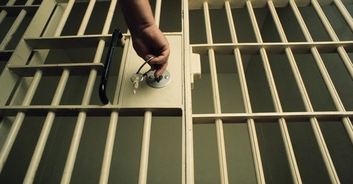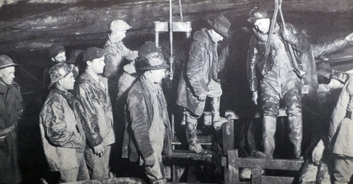Much like World War I, one of the strangest food investigations in recent history may have been decided by a sandwich. Had Gavrilo Princip not decided to stop off for a sandwich back in 1914, he may never have assassinated Austrian Archduke Franz Ferdinand, and the First World War may never have happened at all.
And if a 26-year-old employee at a metal fitting firm called ARI Armaturen in the German town of Schloss Holte-Stukenbrock hadn't noticed a suspicious white powder on his own sandwich, police may have never found out about the man allegedly poisoning employees at the firm for nearly 20 years.
According to Achim Ridder, a spokesman for the Bielefeld Police, his unnamed employee went straight to his manager, who decided to install a CCTV camera in the lunch room. Then, they noticed something rather horrifying.
Surveillance footage showed a 56-year-old employee on two separate occasions open up his colleague's lunchbox, and sprinkle something on the sandwiches inside. “In the beginning, we thought it was a misconceived prank between co-workers, and not a murder attempt,” said manager Tilo Blechinger, before explaining that the man in question had been working there for the last 38 years, describing him as “conspicuously inconspicuous”.
The police were contacted, and law enforcement got clearance to search the suspect's apartment. There, they found plenty more suspicious chemicals such as mercury, quicksilver, lead and cadmium, said Ridder, and the employee in question - known only as Klaus O - was arrested.
“Two days later, we got tests back from our criminal police laboratory in Dusseldorf, which showed [the suspicious powder] was lead acetate, a poison that could have caused severe organ damage,” revealed Ridder, and that's when police decided to widen their investigation.
Since the year 2000, 21 employees at ARI Armaturen had lost their lives under mysterious circumstances. They had died of mostly heart attacks or cancers, which authorities say could have been caused by metal poisoning, but are now running tests to make sure.
“Klaus O remained silent about the allegations and his alleged motive is still unclear,” Ridder revealed about the man who poisoned the sandwich. “And he is not a chemist.” Another police spokesman added that an employee at ARI Armaturen is in a coma, while another is in need of permanent dialysis. Police will now question the relatives and doctors of those that died, and Ridder says we can hope to see progress on the investigation in a few weeks.
"We hope to have [the] first results in several weeks, as some family members and several doctors are on holidays now,” Ridder said. “And some of their bodies might have to be exhumed and examined for traces of poison." It's a horrifying development out in northwest Germany. It remains to be seen whether or not Klaus O poisoned all of these employees - and if he did, why he decided to do it.












